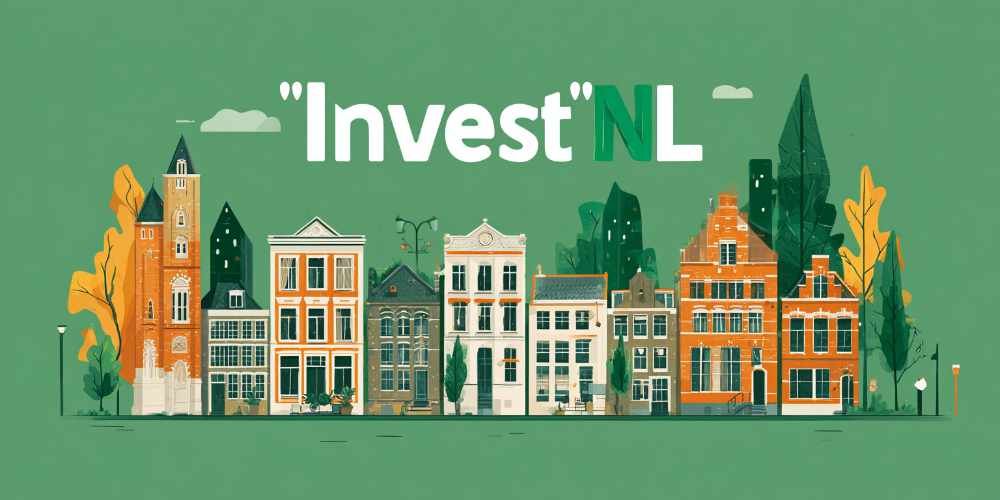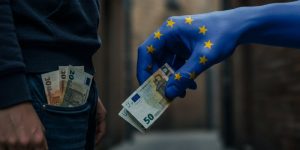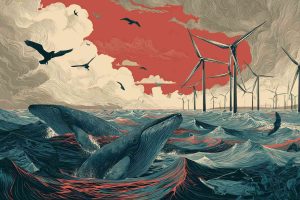Invest-NL: Innovation Engine or Taxpayer Sinkhole?

Invest-NL was launched with grand promises: to turbocharge innovation, accelerate the green transition, and fill funding gaps in markets deemed “too risky” by private investors. With €1.7 billion in taxpayer capital at its disposal, and more since, this state-owned investment vehicle positioned itself as a “catalyst” for sustainable transformation. But five years later, it’s time to ask: has Invest-NL really delivered for the Dutch taxpayer, or is it yet another opaque public institution serving political agendas rather than economic efficiency?
What is Invest-NL?
Invest-NL is a government-owned investment company founded in late 2019 and operational since January 2020. Structured as a private legal entity (N.V.), it is wholly owned by the Dutch Ministry of Finance. Its mission: to support high-risk, future-oriented projects, particularly those tied to climate, energy transition, circular economy, and deep tech, by using public capital to attract private investors.
Its creation was based on the notion that Dutch startups and scale-ups struggle to access funding for innovative yet capital-intensive ventures. Invest-NL claims to “de-risk” these investments, paving the way for others to join (Staat start investeringsfonds van 1, 7 miljard euro, Rijksoverheid).
Funding and Structure
Invest-NL was launched with €1.7 billion in seed capital from the Dutch government. This was later expanded, with its investment capacity now estimated to exceed €3 billion (Jaarverslag 2023, Invest-NL). It does not operate to generate profit for the state. There are:
- No dividends returned to the treasury
- No financial obligations to repay profits to the public
- No parliamentary oversight on project-level allocations
Instead, Invest-NL functions under a mission-driven investment philosophy, focusing on societal returns such as jobs, CO₂ reduction, and innovation, rather than on monetary yield.
The Critical Reality
No Tangible Return for the Taxpayer
Although its investments are framed as future-oriented, the Dutch taxpayer sees no direct benefit:
- No profit or dividend from investments
- No clear tax reduction or economic multiplier in the form of lowered energy prices, reduced inflation, or structural growth
- The risks of failure—very high in early-stage, climate-related startups—are entirely socialized
While some projects may succeed in the long run, this structure effectively means the public absorbs the downside, while private investors reap potential upside (Invest-NL onder de loep, FD).
Self-Congratulatory Metrics
Invest-NL frequently highlights numbers like:
- “€910 million committed by 2023”
- “€2.7 billion in private funds mobilized”
- “82 investments across sectors”
- “12,000 tonnes of CO₂ avoided”
But such metrics are deeply problematic:
- “Jobs created” often include temporary, short-term, or subsidized roles
- “Private capital mobilized” can be misleading—investors may have joined anyway, or were drawn by preferential terms only possible because of state involvement
- “CO₂ saved” is based on projected reductions, often decades into the future and with no independent verification
- Impact assessments are generally done in-house, with little third-party oversight
Volgens Resultaten in beeld: Invest-NL Jaarverslag 2022, Invest-NL, zijn de CO₂‑besparingen en innovatiedoelen grotendeels gebaseerd op aannames zonder publieke controlemechanismen.
Ook uit Beheersing publieke investeringen onvoldoende onderbouwd, Algemene Rekenkamer, blijkt dat “publieke investeringsvehikels als Invest-NL niet aantoonbaar maken wat hun meerwaarde is voor de samenleving.”
Investing in Risky, Unproven Ventures
Many of Invest-NL’s beneficiaries are:
- Pre-profit companies
- Experimental technologies (e.g. hydrogen, bioplastics, battery storage)
- Capital-intensive startups requiring 10–15 years before scale-up
Examples include:
- Elestor – experimental flow batteries
- Umincorp – plastic recycling tech
- Avantium – bio-based polymers
- Exasun – solar panel innovations
These were funded as part of Invest-NL’s “impact” portfolio (Onze investeringen, Invest-NL). While intellectually and environmentally appealing, these are niche solutions with uncertain scalability and unclear commercial pathways. They offer little immediate economic utility for the average taxpayer, and many such companies fail long before they reach mass adoption.
Crowding Out the Private Sector?
Though it claims to “unlock” private investment, Invest-NL may actually undermine healthy markets by:
- Offering below-market terms that private investors cannot match
- Distorting natural risk assessment
- Making companies dependent on public co-financing
- Failing to apply market discipline
Volgens Staatsfondsen: lusten zonder lasten, EW Magazine, opereren instellingen als Invest-NL met zo veel vangnetten dat marktpartijen worden weggeconcurreerd, niet versterkt.
In other words, startups may survive on subsidies, not strength. This raises the question: are we supporting future champions, or creating a class of “zombie innovations” that cannot survive outside government-fueled ecosystems?
ESG and Ideology over Impact
The prioritization of Environmental, Social, and Governance (ESG) themes often leads Invest-NL to fund:
- “Circular” experiments with no business model
- Green-washed projects with little long-term viability
- Urban or ideological initiatives tied to UN/SDG agendas
In De groene investeringswaan, NRC, wordt Invest-NL genoemd als voorbeeld van een “groene paraplu waaronder ideologie schuilgaat in plaats van economische rationaliteit”.
Critics argue that it has become a political vehicle, not an economic one. Its strategy aligns closely with the EU’s Green Deal and other top-down, bureaucratically driven plans, without democratic input from the Dutch taxpayer.
Instead of prioritizing projects with high national relevance (e.g. energy independence, housing, large-scale industrial R&D), it funnels money into boutique ventures that appeal to elite agendas.
Opportunity Costs
Public capital is limited. Every euro spent by Invest-NL could have gone to:
- Direct tax relief
- Public housing projects
- Strengthening basic infrastructure
- Debt reduction
- Healthcare or education
There is little evidence that the returns from Invest-NL exceed the returns of such direct spending. Worse: by creating a new layer of public-private bureaucracy, Invest-NL may actually slow down more impactful direct interventions (Wat levert Invest-NL nou echt op?, ESB Economisch Statistisch Berichten).
Summary Table: Promise vs Reality
| Claim | Reality |
|---|---|
| “Unlocks private capital” | May displace rather than attract private funding |
| “Supports innovation” | Focuses on high-risk projects with uncertain market outcomes |
| “Drives the green transition” | Supports small-scale experiments, not systemic transformation |
| “Creates jobs” | Often temporary, subsidized, or inflated numbers |
| “Fills market gaps” | Enters spaces where VC already exists or could operate without subsidies |
| “Mission-driven” | Operates without measurable benchmarks for real social or economic impact |
| “Cost-effective” | High cost per benefit; no direct return to treasury |
Final Verdict: A Vanity Project in Green Wrapping
Invest-NL has become a bureaucratic amplifier of ESG ideology, wrapped in the language of innovation and sustainability. But in practice:
- It transfers public money to private hands with no guaranteed public benefit
- It lacks accountability, transparency, and democratic oversight
- It does not create meaningful returns for the average Dutch citizen
- It crowds out more efficient or natural market developments
- It prioritizes political agendas over economic rationality
In an era where every euro counts, taxpayers have every right to ask:
Why are we taking high-risk bets on climate tech startups, while healthcare, housing, and security remain underfunded?
Conclusion
Invest-NL is a symbol of modern technocratic governance: ambitious, well-branded, and ideologically driven, but often unmoored from fiscal realism or democratic accountability. While it may produce some long-term success stories, its current structure serves politicians, bureaucrats, and consultants far more than it serves the Dutch public footing the bill.
Unless fundamental changes are made, introducing independent audits, transparency, and citizen oversight, Invest-NL risks becoming not an innovation engine, but a multi-billion-euro illusion of progress.


















